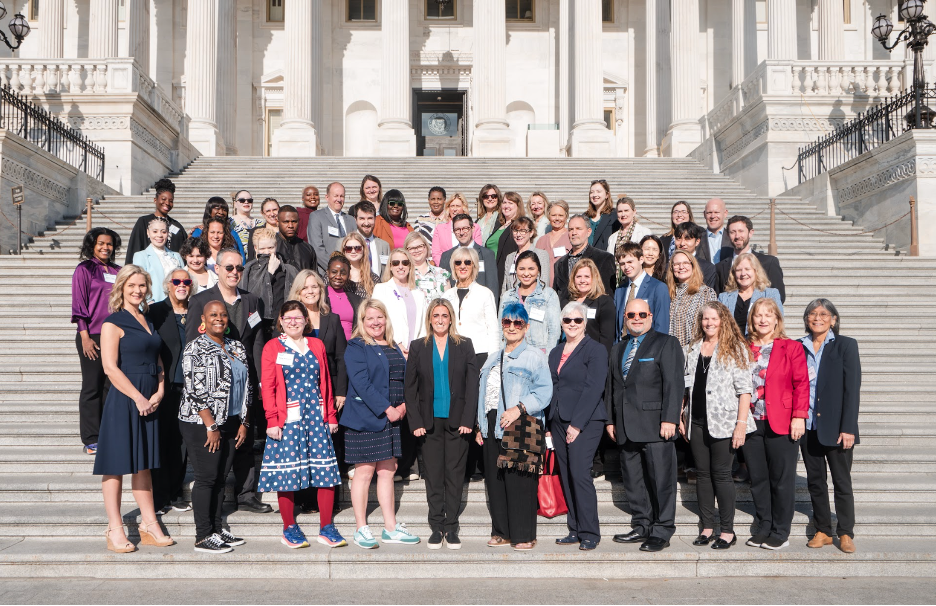We take Advocating for
Patients Seriously
Protecting Patients and Removing Barriers to Care
Nearly every patient with a skin disease experiences significant barriers to accessing the healthcare they need. Patients are often unable to access specialists, medications and durable medical equipment, or the full range of services they need to manage their health outcomes.
The Coalition of Skin Diseases (CSD) supports state and federal initiatives that expand patients’ access to health coverage and health care; remove financial, administrative, and legal barriers to care, providers, and treatment alternatives; and give patients a voice in their care.
CSD supports legislation that would:
Limit Insurance Practices that Act as Barriers to Care, such as prior authorization, step therapy and non-medical switching; placing commonsense guardrails around these protocols and putting patients ahead of health insurer profits.
Establish Guidelines to Protect Patients from High Out of Pocket Costs by ensuring transparency around spending, capping out-of-pocket costs, prohibiting co-pay accumulator programs, and extending these protections to the Medicare program.
Improve Access to Care through initiatives that provide patients with greater access to providers, like telehealth services and network adequacy, and timeliness requirements for insurers.
Promote Equity by implementing policies that confront and address inequities of the nation’s healthcare system in providing access to appropriate care for all dermatological patients.
Expand Covered Benefits to Include Co-Morbid Conditions of Skin Disease. Some skin diseases co-occur frequently with other co-morbid conditions and many create enormous challenges for patients’ mental wellness. CSD supports expanding essential benefits to include coverage for co-morbid conditions and mental health treatment.
Ensure Coverage for Medical Equipment Devices Associated with Skin Disease by requiring insurers to cover cranial prostheses as durable medical equipment for patients experiencing hair loss due to a skin disease, and including medically recommended skin disease therapies on insurer’s formularies.
Preserve Protections for Patients with Insurance Coverage by opposing the elimination of important federal coverage protections currently in place for patients and their families.
Increase Health Insurance Coverage Options for Uninsured Americans by supporting state and federal efforts to eliminate the coverage gap in all states.
Modernize Federally Regulated Health Insurance Policies to Better Protect Patients ensuring that ERISA plans cover the same benefits under the same cost-sharing rules as state-regulated policies.

Funding for Dermatological Disease
The Coalition of Skin Diseases supports increased federal funding for dermatological disease treatment and research.
The National Institutes of Health (NIH) hosts a modest research portfolio on skin diseases, and the CSD works closely with NIH, and specifically with the National Institute of Arthritis & Musculoskeletal & Skin Diseases (NIAMS), to advance critical activities across all skin diseases.
Across all skin diseases, NIAMS supports growing research that has helped us better understand these conditions. In addition to its intra-mural work, NIAMS supports several Resource-Based Centers for skin biology and diseases research across the country. These centers provide critical research infrastructure, shared facilities, services, and resources to groups of investigators conducting research on skin biology and diseases, enabling them to conduct their individual or collaborative research projects more efficiently and effectively.
While these efforts are making much needed progress in the field of dermatology, the sad fact is that although over one quarter of the U.S. population is affected by a skin disease, and estimated costs related to these diseases is over $86 billion dollars annually, only 17% of the $110 million allocated to NIAMS is directed toward skin disease research. More must be done to help improve lives of dermatology patients through scientific research in order to gain a better understanding around the underpinnings of skin disease and prevention, when possible, along with promoting the discovery of viable treatments.
The Centers for Disease Control (CDC) offers grants to patient advocacy groups in the
development of these needed resources. As most skin diseases are chronic in nature and affect individuals throughout their entire lives, it is essential for patients to be provided with adequate education to manage those diseases. The CDC’s Chronic Diseases Education and Awareness Program seeks to provide collaborative opportunities for chronic disease communities that lack dedicated funding from ongoing CDC activities. Such a mechanism allows public health experts at the CDC to review project proposals on an annual basis and direct resources to high impact efforts in a flexible fashion. Continued support for this program will benefit the skin diseases community by allowing for more grants to be funded aimed at raising awareness and expanding educational opportunities for CSD organizations. The more funding available, the more opportunities there are to ensure better provider education and general public awareness.

